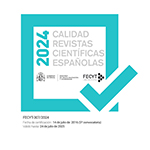Libraries, information and coup d’ etats: theory in the context connected to the political crisis in Honduras
Abstract
The analysis presented is limited whitin the framework of the connection that exists among “libraries, information and coup d’etats”, therefore it fits as an aspect of analysis and study in the field of what is appropriate to call Political Library Science. The theory is made up by four headings: 1] Gabriel Naudé, political librarian who coined the term coup d’etat, 2] The concept of coup d’etat in relation with the documentary and information world, 3] Libraries and coup d’etats, 4] Information and coup d’etats; the context is shaped by the following two sections: 5]The coup d’etat in Honduras, a danger for its libraries and librarians, and 6] The usurping government in Honduras attacks the freedom of access to information. In this way, the author perceives that coup d’etats show a great variety of facts regarding the period of repression and destruction that bibliographic traditions, libraries and librarians have suffered, among other figures of bibliographic culture.Downloads
Article download
License
In order to support the global exchange of knowledge, the journal Revista General de Información y Documentación is allowing unrestricted access to its content as from its publication in this electronic edition, and as such it is an open-access journal. The originals published in this journal are the property of the Complutense University of Madrid and any reproduction thereof in full or in part must cite the source. All content is distributed under a Creative Commons Attribution 4.0 use and distribution licence (CC BY 4.0). This circumstance must be expressly stated in these terms where necessary. You can view the summary and the complete legal text of the licence.











